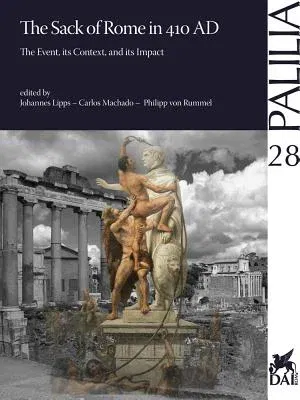On 24 August 410, the Visigothic troops led by their king Alaric
captured the city of Rome, looting the city for three days. This was the
first time the city was captured in 800 years, igniting a debate with
religious overtones over the causes for the fall of the city. Whereas
pagan authors seem to have held the spread of Christianity and the
abandonment of traditional cults responsible, Christian writers refused
to accept this responsibility and minimized the horrors of the sack.
Whatever happened on these days remains uncertain. Even archaeologists,
influenced by the accounts transmitted by literary sources,
traditionally accepted the notion that the Sack of Rome was a
catastrophic event, with serious impact on the city, its population and
its physical structures. This book, the proceedings of a conference held
at Rome in November 2010, provides a systematic re-evaluation of all the
evidence available, both literary and archaeological. Starting with two
chapters considering the theoretical and methodological issues involved
in the analysis of historical events and their relationship with the
archaeological record, the first section discusses the political and
ideological context for the fall of Rome. The second part of the book,
dedicated to the archaeology of the late antique city, shows that
although there are a few examples of buildings destroyed or abandoned in
the first half of the fifth century, none of these can be unequivocally
linked to the destruction wreaked by the Goths. The archaeology of the
city does not fit easily with the literary accounts of historical
events. The third part of the book is dedicated to the analysis of
different aspects of the history and archaeology of the period, trying
to assess the impact of the actions of Alaric and his soldiers. Elements
as different as the demography of the city, its suply of imported goods,
burial practices, the epigraphy and the practice of dedicating statues
are considered, showing that in most of the cases changes seem to have
been the product of long-term trends, rather than responses to a
specific events. The Sack of Rome is here, for the first time, analysed
and discussed by scholars of different background and nationality.

